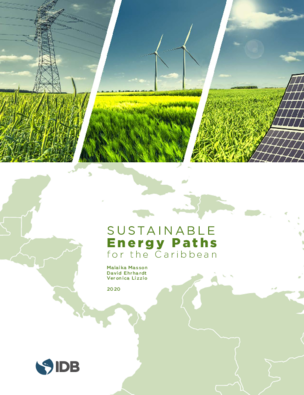Sustainable Energy Paths for the Caribbean
Date
Mar 2020
This paper uses detailed datasets and modelling of 13 countries to develop sustainable energy pathways for the Caribbean. These pathways can deliver US$16 billion in net benefits over 20 years, require investments of US$11 billion, and can save 54 million tons of CO2 emissions. While the Caribbean region has not met its ambitious renewable energy targets, advances in solar, wind and battery storage technologies mean that these technologies are now least cost in many circumstances: renewable generation penetration of 21% is economically justified. However, the need for dispatchable power and energy at night, along with the use of indigenous hydro-carbons, limits the economically viable uptake of renewable generation. In Caribbean countries with suitable geothermal and hydro resources, 100% renewable power is economically feasible. In others, natural gas will be a cheaper, cleaner substitute for the diesel and Heavy Fuel Oil currently being used, at least until battery storage becomes competitive for sustained night time supply. Energy efficiency investments have the potential to reduce total generation needed by 18% while producing net benefits of US$6 billion. Increasingly frequent intense hurricanes have devastated several Caribbean island energy systems, and this is projected to continue, justifying investment in resilience in generation, undergrounding portions of networks, and new grid configurations such as the use of minigrids with distributed generation and storage. Initial estimates suggest that around US$2.5 billion in resilience could yield net benefits worth over US$4 billion. The paper also includes policy recommendations for the region in the areas of standards, integrated resource and resilience plans, regulation and financing mechanisms.




